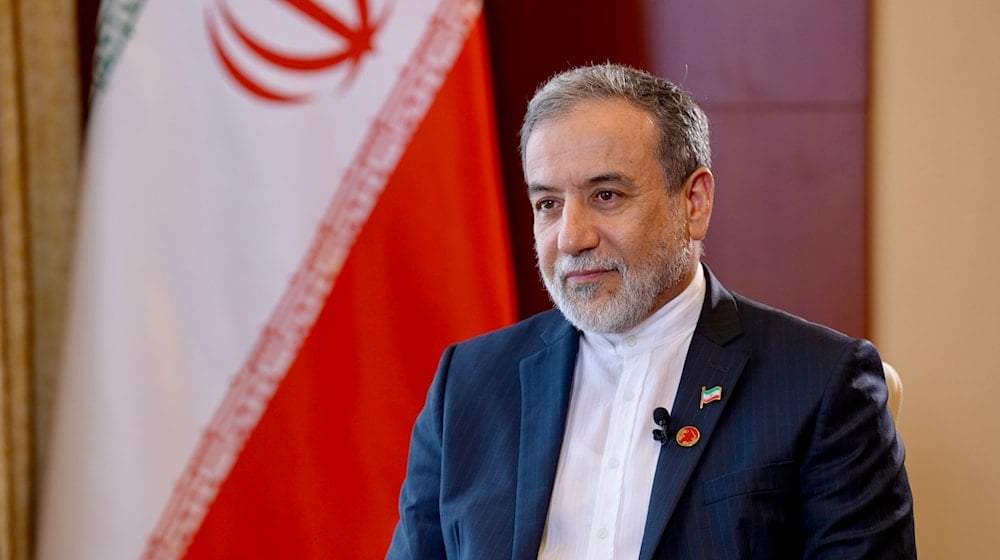Araghchi criticizes IAEA 'poor conduct' over Israeli strikes on Iran
Iranian Foreign Minister Abbas Araghchi voiced displeasure with the UN nuclear watchdog over its lack of action over the Israeli strikes on Iran's nuclear facilities.
-

Iranian Foreign Minister Seyed Abbas Araghchi in an exclusive interview with CGTN. (CGTN)
Iranian Foreign Minister Abbas Araghchi has sharply criticized the International Atomic Energy Agency (IAEA) for its "poor conduct" before and after the illegal and brutal US-Israeli strikes targeting Iranian nuclear facilities.
Speaking in a televised interview on Thursday, Araghchi called the attacks “the gravest violation of international law” and said they represented an “absolutely unforgivable” breach of international norms. He accused both the United States and the Israeli regime of engaging in direct aggression against Iran, assassinating military commanders and nuclear scientists, and killing hundreds of civilians.
In the aftermath of the attacks and the IAEA’s failure to issue any condemnation, Iran’s Parliament passed a law on June 25 mandating the suspension of cooperation with the agency. The law blocks IAEA inspectors from accessing Iranian nuclear sites unless the Supreme National Security Council approves their entry based on guaranteed protection for Iranian nuclear facilities.
Araghchi declared that the IAEA had failed in its responsibility to safeguard peaceful nuclear programs and criticized its silence as enabling aggression. He argued that the recent developments require a “new chapter” in Iran-IAEA cooperation, saying the previous framework is no longer valid.
"Given all these realities, there is a need to set up a new framework for cooperation with the agency. The previous framework does not certainly work,” he said.
Iran has invited the IAEA’s deputy director general to visit Tehran, though Araghchi clarified that no inspections will be permitted during the visit. Talks will be limited to bilateral cooperation regarding Iran’s peaceful nuclear program.
No decision yet on future talks with US
Araghchi also addressed speculation about future negotiations with the United States, stating that no final decision has been made, though messages have been exchanged. He emphasized that Iran would not engage in talks that aim to secure objectives the US failed to achieve through military means.
"We have officially and explicitly stated that if they (the Americans) think that we will enter negotiations to achieve what they could not obtain through the military attacks, this will not happen now or in the future,” he stated.
Previous indirect negotiations between Iran and the United States, mediated by Oman, had reached five rounds before being disrupted by the Israeli war on Iran. A sixth round scheduled for June 15 in Muscat was canceled following the attacks.
Araghchi also criticized the European troika (E3), Britain, France, and Germany, for threatening to invoke the so-called snapback mechanism. He warned that such a move would only complicate efforts to revive diplomacy and would produce no tangible results.
The snapback mechanism would reinstate previously lifted UN Security Council sanctions on Iran, including arms embargoes, asset freezes, and travel bans.
"US military strikes failed to produce the desired results and only made the path toward a diplomatic solution and meaningful negotiations more difficult and complex,” Araghchi said.
He concluded by reaffirming that the Islamic Republic would never compromise on the rights of the Iranian people, regardless of external pressure.

 3 Min Read
3 Min Read










